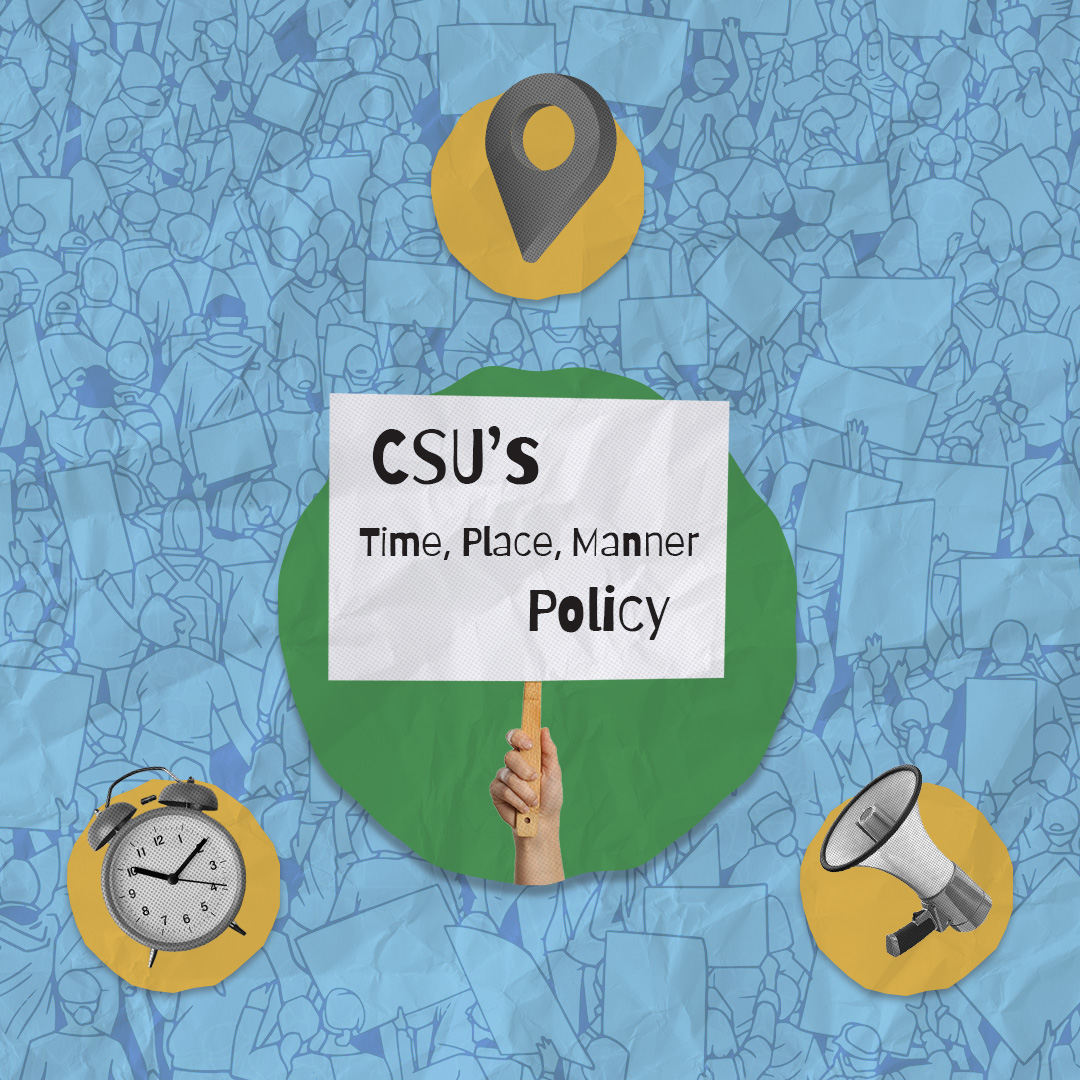This article was updated on Dec. 3, 2024
It was 4 p.m., time to pack the signs up and go home for the evening. Masks could be put back on. Students used to be able to protest after the campus was closed and wear whatever facial coverings they wanted. But as of August 2024, this has changed.
These restrictions are just a part of the new reality facing California State University students and faculty under the CSU’s new time, place and manner regulations.
The CSU states in the policy that these rules were instated to help them accomplish their goal of promoting education. It is necessary to recognize the timing of when these regulations have been enacted. They come about in the wake of a semester of pro-Palestinean protests.
The Constitution of the United States outlines in the First Amendment the freedom of speech and peaceful protest which the government can’t impede on. The CSU system is a public institution funded by the California government meaning it is subject to the First Amendment.
Content-neutral restrictions, like those passed, regulate the circumstances in which the freedom of speech can be expressed. Those passed by the CSU go a step too far as they start to affect the attire of the protestors and when demonstrations can occur.
San Diego State University does not specify in its policy whether exceptions will be made for students who wear these religious garments. Administrators said protesters will continue to have a right to wear face coverings on university property provided that they aren’t in violation of university policy and can show identification when asked.
However, it’s possible that students who wear religious attire like niqabs or burqas could still feel discouraged from protesting for fear of being forced to remove their religious garments.
“The worst case scenario is that someone would go to this protest without their garment on and not feel like themselves; they might feel shy or uncomfortable,” Aniko Botschek, an SDSU student, said.
Botschek has not attended a protest or demonstration; however, she views it as necessary for everyone to have the freedom and the comfort to protest if that is their choice, like how it is her choice not to participate.
SDSU says on their official page for time, place and manner restrictions that facial coverings are not permitted when they serve the purpose of evading discovery. This is an unclear definition as officials are free to interpret when they view students wearing facial coverings to evade discovery.
The time of protesting is another way that the university is restricting student protesting. SDSU’s policy webpage states that demonstrations must take place during public hours on campus.
This can make attending demonstrations difficult for students with a full-time schedule as they might have class or work during demonstration hours. This could deter students from engaging in demonstrations they would otherwise have been able to attend.
Some demonstrations have higher effectiveness at hours outside of university public hours. For example, a candlelight vigil is most effective when it is dark. Events like these have a deep emotional atmosphere that is exacerbated by the dark setting creating a somber feel in the air. But under new restrictions, it won’t be possible for demonstrations to take place when it is dark.
In October 2023, a candlelight vigil was held to remember lives lost in the Middle East. Under the new regulations, this would not have been able to happen as it occurred at 6 p.m.
This new time restriction is strict but it would be harder for the university to regulate student demonstrations after hours meaning a time restriction is an easy solution for SDSU.
Some of the policies are necessary to protect the property of the university from harm.
We can all agree that a restriction on public urination is in the best interest of the student body. Restrictions on fireworks and missiles, go ahead. These regulations work to ensure the comfort and safety of all SDSU students.
The restrictions go too far when they stop protecting the community of SDSU and start to inhibit freedom of speech and religious expression.
“Everyone should be given the opportunity to express themselves and their opinions,” Botschek said.
Correction: an earlier version of this article misstated a portion of the CSU policy surrounding religious face coverings.






